History
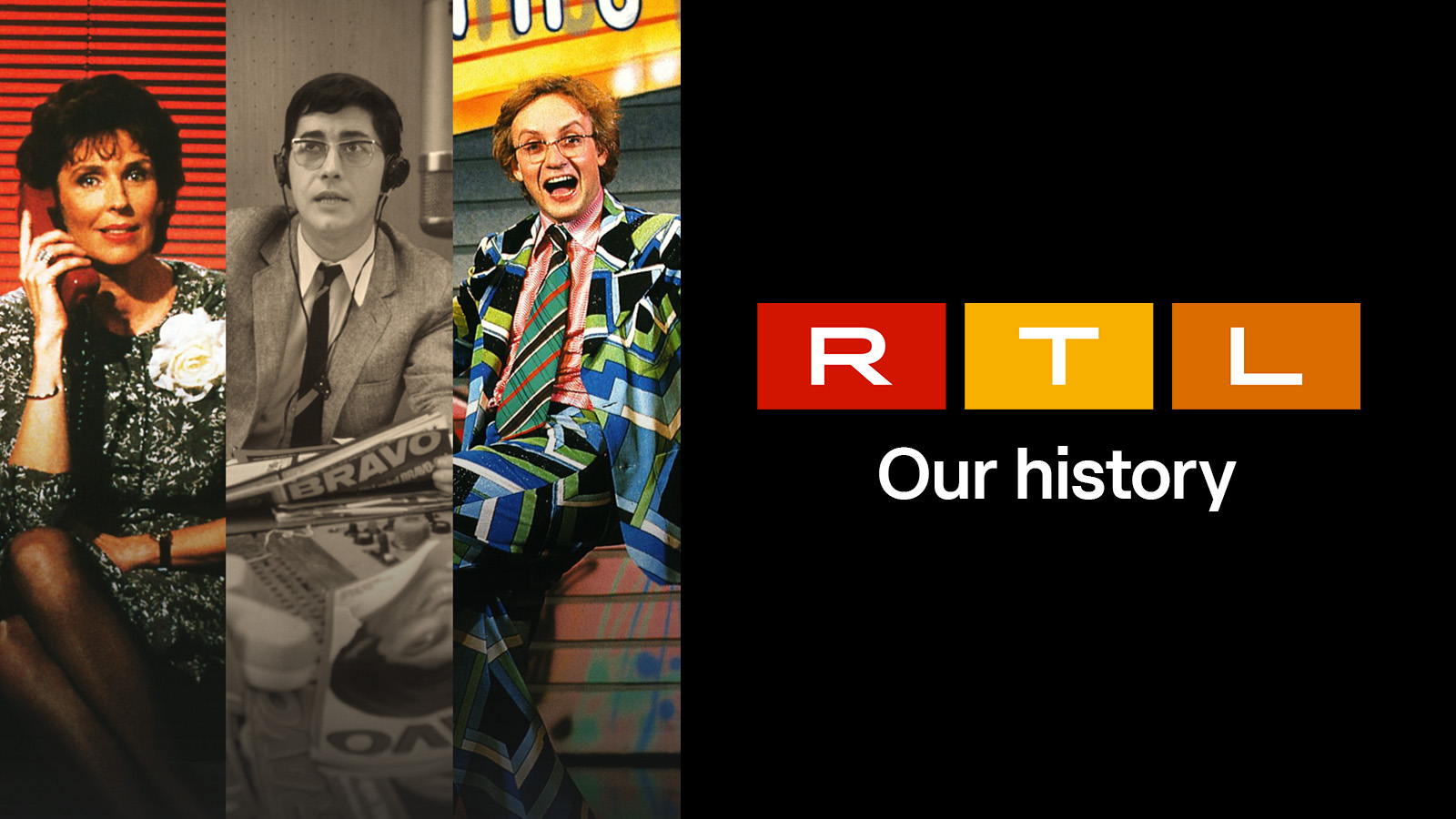
1920
The twenties
The world discovers a new method of immediate and far-reaching communication: the radio.
1923
First steps
Enthralled by radio broadcasting, François and Marcel Anen install a radiotelephone transmitter in the attic of their house, 28 Rue Beaumont in Luxembourg, in autumn 1923 and start their first experiments.
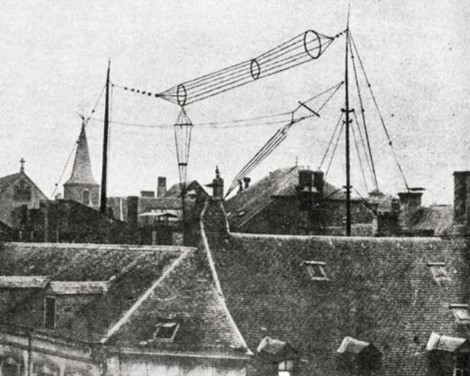
April 2024
From amateur radio to broadcasting
In April 1924, the Anen brothers take the step from amateur radio to broadcasting, starting a regular programme in Luxembourg that plays mainly music records.
July 1925
Becoming professional
The Anen brothers create Association Radio Luxembourg to run the station.
1926
Entertaining
The station broadcasts music records, sports results on Saturdays, and live concerts performed by an orchestra from both their attic studio and other locations. The first presenters speak mainly Luxembourgish, but also German, French and English. The transmitter’s power is boosted to 150 watts. In France, the Bokanowski decree aims to strengthen the state monopoly in broadcasting by authorising the existing private commercial radio stations only until 1 January 1933 – after this date, they will come under the guardianship of the state. Owners of such radio stations, like Radio Paris and Radio Toulouse, start looking for new opportunities outside France. Some turn towards Luxembourg.
1927
A new antenna
Association Radio Luxembourg is granted a subsidy by the Luxembourgish state to install a new antenna.
1928
Increasing power
The transmitter’s power is boosted to 250 watts. The same year, François Anen accepts the outgoing 3-kilowatt transmitter from Radio Toulouse to use in Luxembourg. A French–Luxembourgish syndicate is created with the aim of installing a powerful radio station in Luxembourg. Named Blue Star Radio, it is represented by the Luxembourgish sports journalist Alphonse Steinès and has the financial support of the Banque française et hollando-américaine.
1929
Two more companies
The same aim is pursued by two more companies created in 1929: On 27 May, the Société Luxembourgeoise d’Études Radiophoniques (SLER), led by the French Compagnie des Compteurs, is officialised. 29 July sees the officialisation of the Compagnie Nationale de Radiodiffusion Luxembourgeoise (CNRL), led by Jacques Trémoulet, Head of Radio Toulouse. CNRL – in which the Anen station has been integrated, and which was given the frequency of 223m by the Prague Plan in January – starts building a transmitter site in Cessange, Luxembourg, and begins broadcasting under the name Radio Luxembourg. François Anen is involved in both companies.
19 December 1929
New law
The first Luxembourgish law regulating radio broadcasting is published on 19 December. The law states that all radio stations must be authorised by the head of Postes et Télégraphes administration.
1930
The thirties
CLR (Compagnie Luxembourgeoise de Radiodiffusion) is born. The company becomes a European pioneer by broadcasting a unique programme in several languages using the same frequency.
January 1930
Broadcasting ceased
In January, CNRL is ordered by the Luxembourgish authorities to stop broadcasting Radio Luxembourg.
29 September 1930
Exclusive licence
SLER obtains the exclusive licence for radio broadcasting from the Luxembourg government. A 25-year concession agreement is signed on 29 September.
30 May 1931
Founding CLR
The members of SLER found Compagnie Luxembourgeoise de Radiodiffusion (CLR). The main shareholders are CSF, Agence Havas (both already associated with Radio Paris), I&P, Banque de Paris et des Pays-Bas, Compagnie des Compteurs and the Banque Industrielle Belge. The headquarters of CLR are established at 53 Avenue Monterey. François Anen joins the technical services of the new company’s studios.
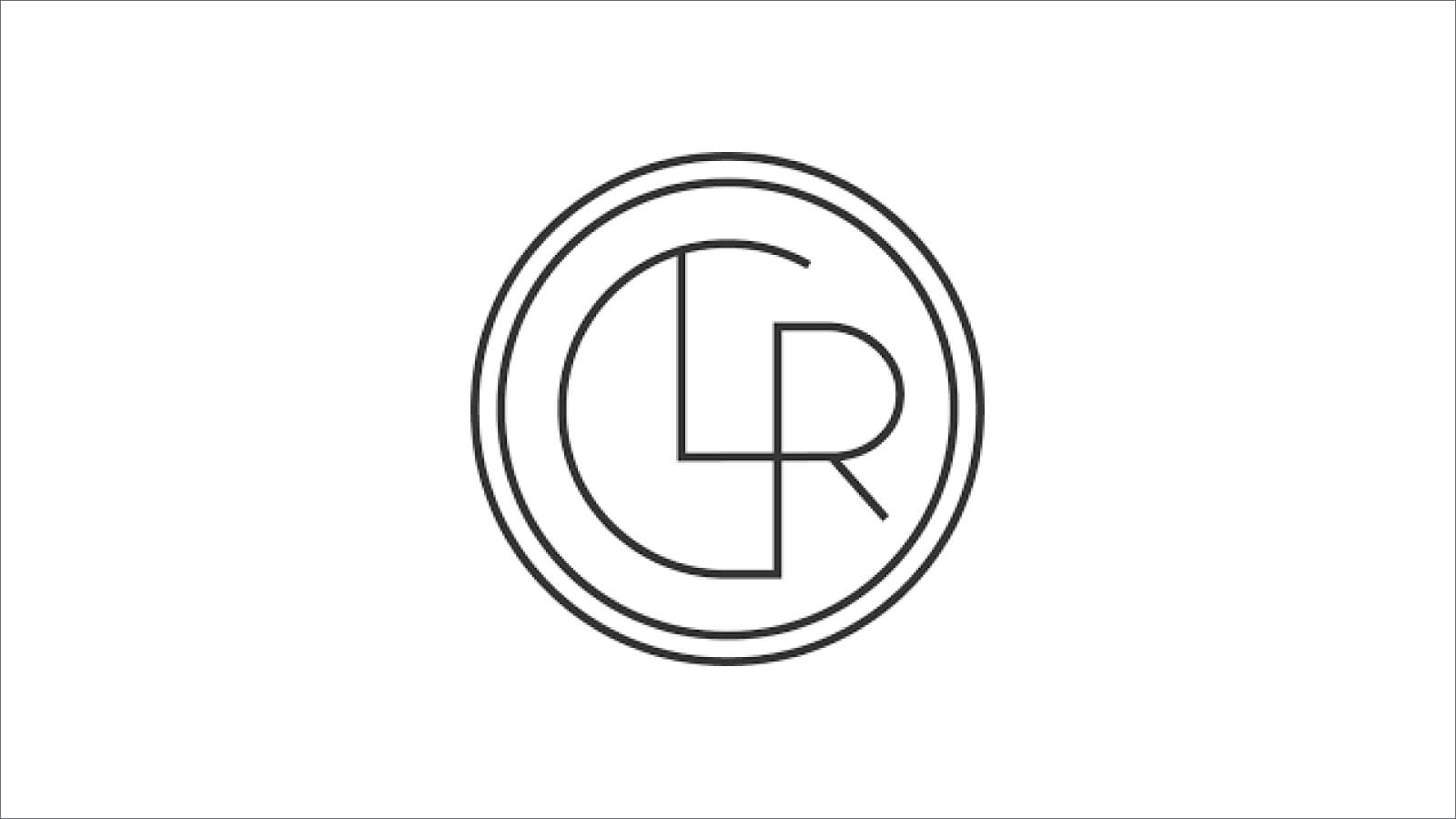
7 October 1931
Under construction
The construction of the transmitter site in Junglinster, central Luxembourg, begins.
29 August 1932
Villa Louvigny
Part of Villa Louvigny – built on a 17th century fort located in the heart of Luxembourg – is rented as headquarters for all radio activities except transmission.
15 March 1933
First regular long wave broadcast
After an experimental programme, Radio Luxembourg makes its first regular long wave broadcast on 15 March in French and German from Villa Louvigny’s studios, using the most modern and powerful transmitter in Europe.
15 July 1933
An orchestra
A newly founded orchestra plays its first concert under the direction of Henri Pensis. This will become the famous Orchestre Symphonique de Radio Luxembourg.
3 December 1933
English programmes
English programmes start on 3 December, broadcasting simultaneously during the week from Radio Paris and Radio Luxembourg, before being transferred permanently to Luxembourg. The international and multilingual programming is a huge success in Germany, Great Britain, France and Belgium, astonishing CLR’s competitors.
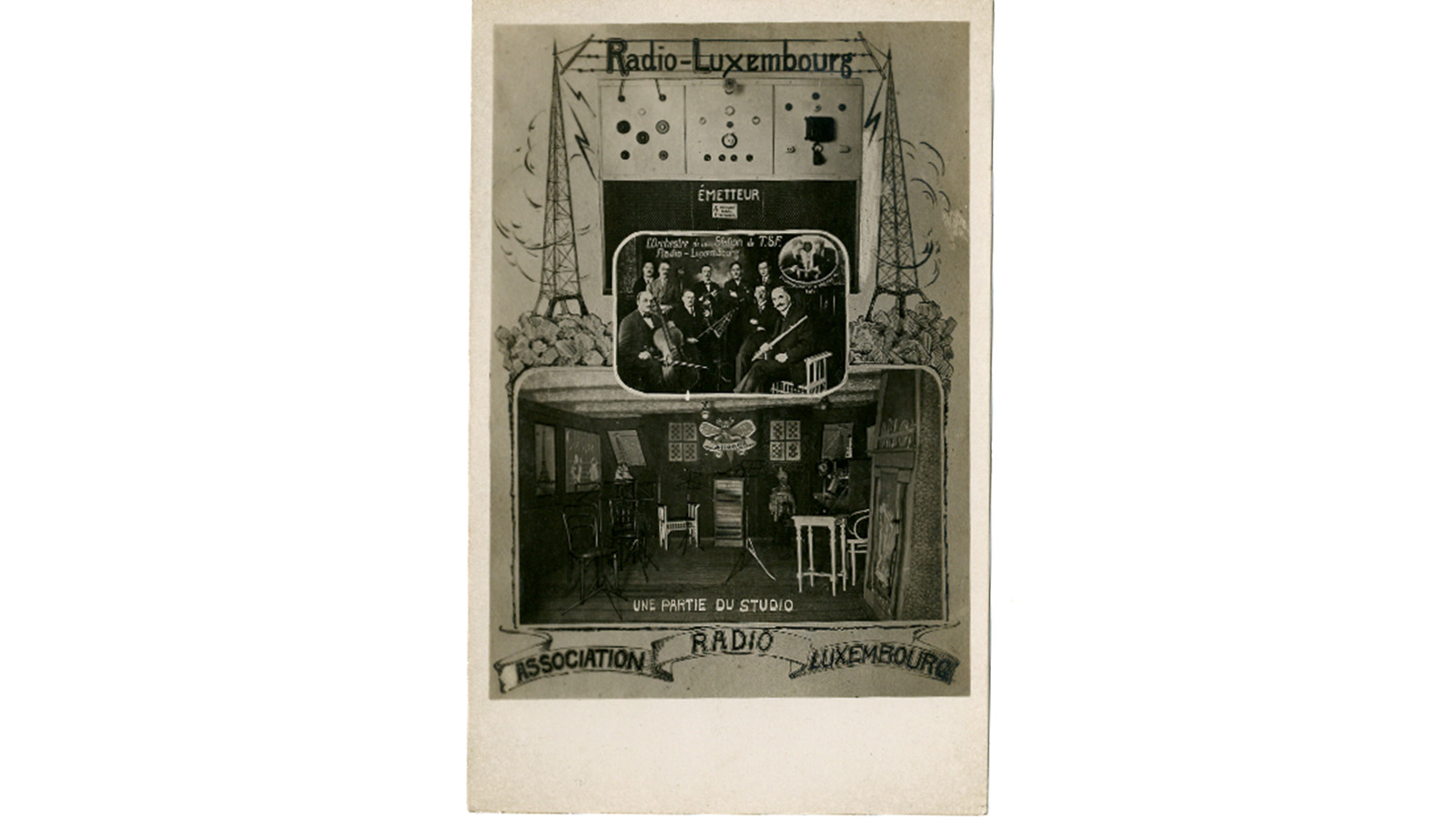
3 July 1934
Live from the tour de France
For the first time, Radio Luxembourg broadcasts live from the Tour de France bicycle race.
1936
Arriving in Paris
A French administrative headquarter for Radio Luxembourg is set up at 22 Rue Bayard in Paris.
29 June 1937
Villa Louvigny
Thanks to the ongoing success of Radio Luxembourg, CLR buys Villa Louvigny and extends the premises.
May 1938
The Luxembourg listener
From May 1938 to September 1939, a De Havilland Dragon aeroplane christened “The Luxembourg Listener” makes a twice weekly return trip from Croydon, UK, to Esch-sur-Alzette, Luxembourg, carrying taped programmes, records and passengers.
2 September 1939
On the eve of war
The Luxembourg government is concerned about maintaining Luxembourg’s neutrality and asks CLR to stop broadcasting – a decision already considered by the company’s management. Regular programmes cease on 2 September, and broadcasting is limited to official government communiques and music. Less than three weeks later, on 21 September, operations are closed down.
1940
The forties
War time. The Nazis use the radio station from 1940 to 1944, then the Allies take over. Radio Luxembourg begins broadcasting again in November 1945.
10 May 1940
Nazi invasion
On the day of the Nazi invasion, the German Army set their sights on Radio Luxembourg’s installations in the Grand Duchy. Four weeks later, German troops restart the station and use it for their communication until October 1940, when the transmitter is incorporated into the German network of radio stations and used for Nazi propaganda.
10 September 1944
Liberation
American troops liberate the country. Following an agreement between the exiled Luxembourg government and the United States, the radio transmitter, which was damaged by the German army, is made available to the Psychological Warfare Division (PWD) of the Supreme Headquarters Allied Expeditionary Forces. PWD was an Anglo-American organisation that used radio broadcasting to undermine the morale of German soldiers.
July 1945
A bitter return
The Office of War Information begins to use the station in July, handing over the installations to CLR on 11 November. The return to Villa Louvigny is a bitter disappointment for rehired staff, as most equipment has been destroyed and the building plundered by the Nazis.
12 November 1945
“Bonjour le monde...”
Radio Luxembourg begins broadcasting again on 12 November 1945, with the famous words: “Bonjour le Monde, ici Radio Luxembourg” (Hello world, here is Radio Luxembourg).
1947
Les amis de Radio-Luxembourg
An association of Radio Luxembourg supporters in France – Les Amis de Radio-Luxembourg – is born.
1950
The fifties
The use of a medium wave transmitter contributes to the spectacular development of radio and the beginning of CLR’s audio-visual adventure, in which CLR becomes CLT.
15 January 1951
New transmitter
CLR’s new medium wave transmitter in Junglinster is inaugurated. Radio Luxembourg transfers its English programme to medium wave 208 and Two-O-Eight becomes a new reference for young Britons. Part of the medium wave broadcasting is also occupied by a programme in Dutch and Luxembourgish. The success of Radio Luxembourg grows day by day.
1952
A studio in London
A studio is installed at 38 Hertford Street in London.
18 May 1953
Alas Leoni dedit
The new Villa Louvigny is inaugurated. A winged lion with the motto “Alas Leoni dedit” (It gave wings to the lion) decorates the front of the building.
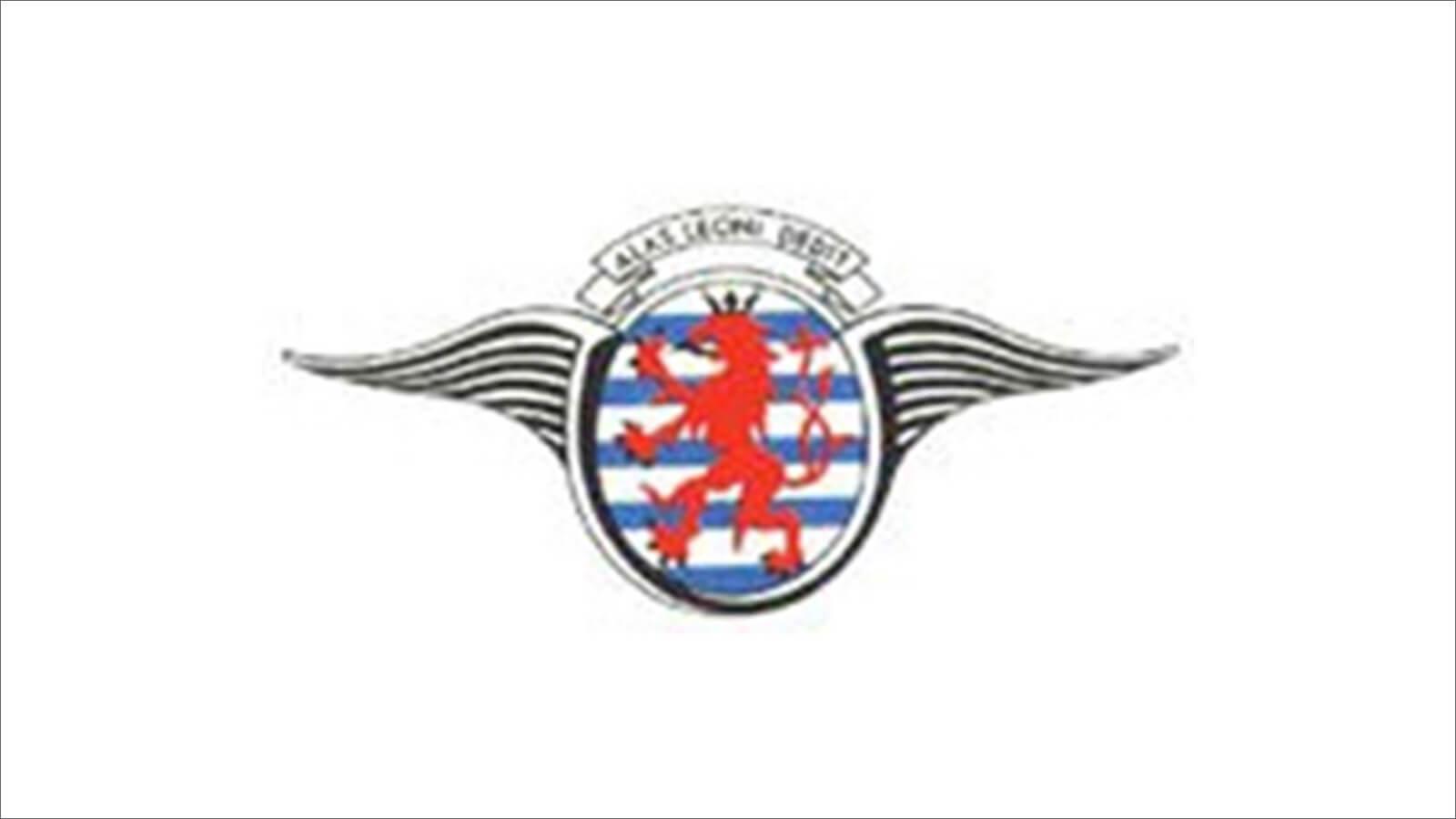
1 July 1954
A new era of broadcasting
The management of CLR enters a new era of broadcasting: television. On 1 July, CLR becomes CLT (Compagnie Luxembourgeoise de Télédiffusion) and begins the construction of a TV transmitter and studio in Dudelange, southern Luxembourg.
23 January 1955
Télé Luxembourg
Télé Luxembourg – a TV channel in French – broadcasts its first experimental programme on 23 January from Dudelange within North-East France, Luxembourg and South Belgium.
14 May 1955
Inauguration and regular broadcasting
Regular broadcasting begins on 14 May, which is the same day the installations are officially inaugurated in Dudelange.
14 December 1956
Better reception
The 350kW medium wave transmitter – relocated from Junglinster to Marnach, northern Luxembourg to provide better reception in England and Scandinavia – goes into service.
15 July 1957
German radio
A radio programme in German is reintroduced on medium wave 208. The programme is to become a phenomenal success. Years later, it will be renamed RTL – Der Oldie Sender, and will specialise in an “oldies” format. Today, we know it as RTL Radio – Deutschlands Hit-Radio. Télé Luxembourg is now entirely broadcast from Villa Louvigny.
19 October 1959
Extension
The radio programme in Luxembourgish is extended and transferred from medium wave to short wave 92.5. Today’s RTL Radio Lëtzebuerg is born.
1960
The sixties
Increasing the power of its long and medium wave transmitters, Radio Luxembourg – which now bears the name RTL – becomes one of the most powerful private radio broadcasters in the world.
1960
Connection cut
After a live interview with Algerian President Ferhat Abbas, broadcasted by Radio Luxembourg, the cable which connects Paris and Luxembourg is cut for two hours by the French Minister of Information.
April 1965
Becoming French?
The French state plans to acquire part of the capital of CLT through the government-owned organisation SOFIRAD (Société financière de radio diffusion). The plan is abandoned due to opposition from the Luxembourg government.
11 October 1966
RTL
Radio Luxembourg in France is rebranded to RTL.
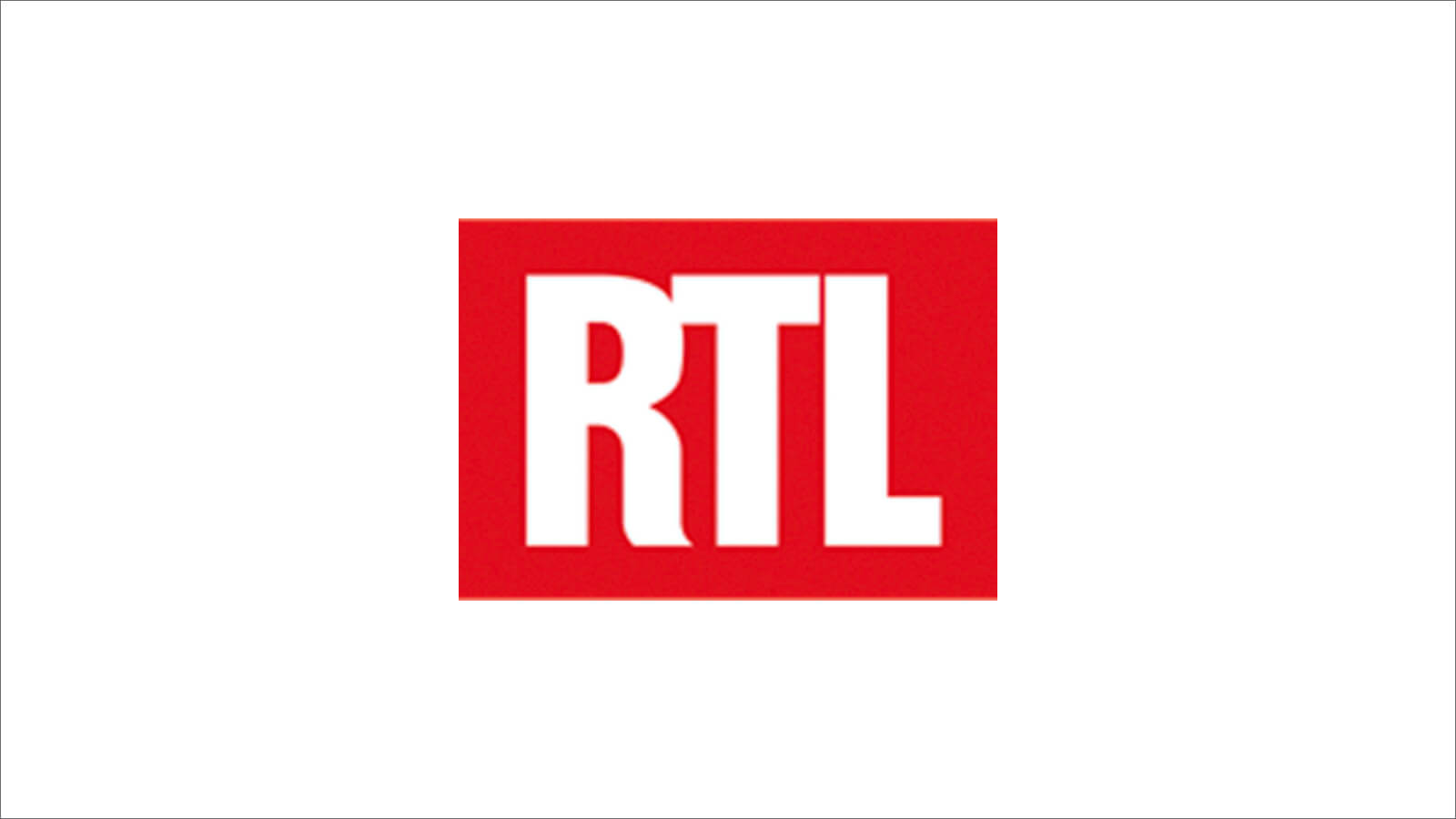
21 September 1969
Hei Elei Kuck Elei
A new TV programme in Luxembourgish is born. The two-hour mixed programming show – Hei Elei Kuck Elei – broadcasted every Sunday, is the predecessor of today’s RTL Télé Lëtzebuerg.
1970
The seventies
The seventies witness the birth of colour television. Télé Luxembourg goes from strength to strength, following in the footsteps of CLT.
15 October 1972
Now in colour
Télé Luxembourg makes its first colour broadcast. The success of the channel increases in North-East France and the South Belgium.
19 October 1972
Beidweiler
Powerful longwave transmitters go into service in Beidweiler, central Luxembourg. The transmitters in Junglinster are used as back up.
April 1973
Audiofina
The new holding Audiofina (Compagnie luxembourgeoise pour l’Audio-Visuel et la Finance) is formed, based on CLT shares. In 1974, following several transactions, Audiofina holds up to 54.63 per cent of CLT’s capital, becoming the driving force of the company.
4 December 1975
RTL productions
The Luxembourg-based production company RTL Productions is founded. This is the predecessor of today’s BCE (Broadcasting Center Europe), RTL Group’s Luxembourg-based technical service provider.
1980
The eighties
European countries open their doors to commercial TV channels and radio stations. CLT moves closer to its audiences, setting up subsidiaries in the main European countries.
31 July 1981
A tragedy
A Belgian military jet crashes into the TV antenna in Dudelange, killing three people. RTL Télé Luxembourg is granted direct access to the Belgian cable network.
January 1982
RTL Télévision
RTL Télé Luxembourg is renamed RTL Télévision.
2 January 1984
RTL Plus
The commercial TV channel RTL Plus is launched in partnership with UFA, a Bertelsmann company (today called RTL and market leader among the commercial channels in Germany). On 2 January, the TV channel RTL Plus begins broadcasting its German programme from Luxembourg. The programme bears the slogan RTL Plus – Das erfrischend andere Programm (The refreshingly different programme), and a new logo.
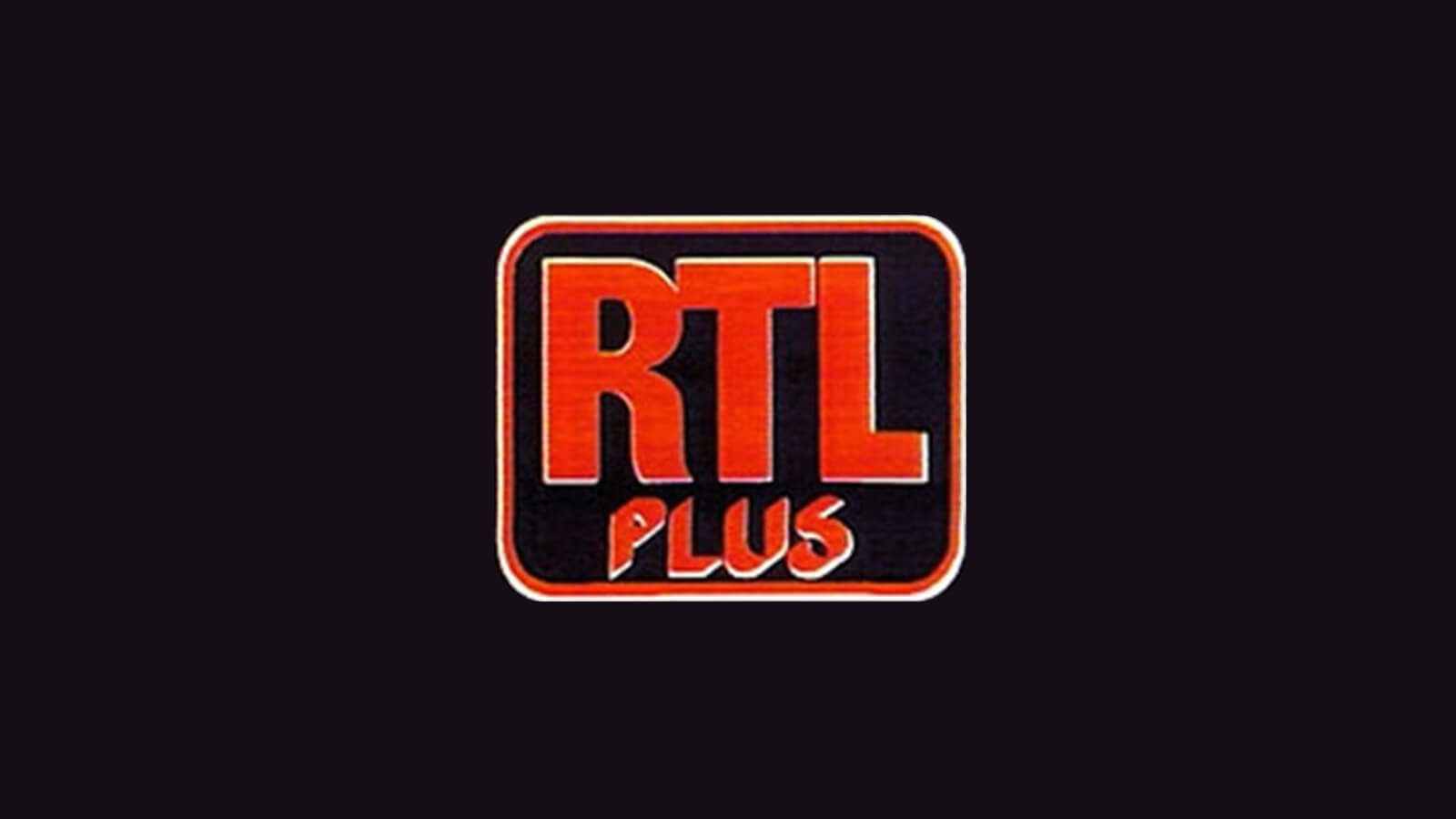
March 1987
M6
The TV channel M6 is launched in France. CLT initially owns a 25 per cent stake in M6, which becomes a publicly listed company in September 1994. Since February 2004, RTL Group has been recognised as the principal shareholder in Groupe M6 by the French media regulator CSA, owning a 48.5 per cent economic interest.
12 September 1987
RTL-TVI
The television station RTL-TVI is launched in Belgium.
1 September 1989
Atlantic 252
Atlantic 252 – a radio station in English – is launched in Ireland.
2 October 1989
Entering the Dutch market
RTL Véronique (renamed RTL 4 in 1990) – a TV channel in Dutch – is launched in the Netherlands.
1990
The nineties
CLT continues to expand into new countries, setting up a complementary network of TV channels and radio stations and thus beginning to create families of channels. At the end of the nineties, the merger of CLT and UFA creates the leading European broadcaster and production house and is a turning point in CLT’s history: CLT-UFA is the European Entertainment Enterprise.
1991
New beginnings and the end of an era
The new building in Kirchberg, north-eastern Luxembourg City, is inaugurated: it will become the Group’s administrative office and radio headquarters. TV activities remain in the now legendary Villa Louvigny. Radio Luxembourg, the medium wave programme that contributed to the reputation of CLT in Europe, particularly the UK, stops broadcasting on the medium wave for many decades. This eventually leads to the closure of the station, although CLT is still present in the UK via Atlantic 252. After the acquisition of a stake in Radio Contact in 1990, CLT launches the radio stations Bel RTL in Belgium and 104.6 RTL in Germany.
21 October 1991
Daily Luxembourgish programme
RTL Hei Elei, a daily evening programme in Luxembourgish, offers news and special features to the Grand Duchy. On 25 September 1995, it is replaced by the programme Eng Stonn fir Lëtzebuerg (One hour for Luxembourg), which marks the start of today’s RTL Télé Lëtzebuerg.
1993
New channels
The TV channel Vox is launched in Germany on 25 January. The TV channels RTL II in Germany (6 March; today: RTL Zwei) and RTL 5 in the Netherlands (2 October) are also launched. The company acquires a stake in Fun Radio, a French music radio station.
1995
Further expansion
RTL 2, a French music radio station previously called M40, is launched on 18 January. Club RTL in Belgium (22 February) and Super RTL in Germany (28 April) – a joint venture with Disney – are launched. The Dutch-language radio and TV station Veronica is launched on 1 September. The channel – based in Hilversum – is to become Yorin and Yorin FM in 2001.
1996
Moving forward
Following an agreement between CLT and the Luxembourgish government, the Orchestre Symphonique de RTL becomes the official state orchestra, and is renamed Orchestre Philharmonique du Luxembourg. The opening ceremony for a second building in Kirchberg – the new TV centre – takes place. Television and radio are brought together on one site, and Villa Louvigny is sold. TV and radio stations in the Netherlands are united under the single organisation HMG (renamed RTL Nederland in 2004).
1996
New ventures
Téva, a digital thematic channel, is launched in France on 6 October. RTL7 is launched in Poland on 7 December. This new TV channel in Polish – based in both Warsaw and Luxembourg – is sold in 2001 due to its limited technical reach. TPS, a new digital pay-TV offering, is launched in France on 16 December. Plans for a similar offering in Germany – to be named Club RTL – are cancelled due to uncertainties surrounding technical standards and the high costs of broadcasting rights. Market conditions for TPS appear to be more favourable. CLT holds 20 per cent in TPS (which is subsequently sold to Suez Lyonnaise des Eaux and M6 in 1998).
13 January 1997
CLT-UFA
CLT-UFA is created. Bertelsmann, shareholder of UFA, and Audiofina, shareholder of CLT, merge their TV, radio and production businesses to create Europe’s leading commercial TV, radio and production company. The new company combines the strengths of CLT – a leader in pan-European broadcasting, and creator of the RTL brand – with the historic UFA, a major player in broadcasting, production and rights. As a result of the merger, CLT-UFA significantly reinforces its position in Germany and becomes the majority shareholder in RTL Television and one of the largest shareholders in RTL Zwei.
30 March 1997
Channel 5
Channel 5, in which the CLT-UFA holds a 29 per cent stake, is launched in the UK – the UK’s only purely advertising-based terrestrial channel – and subsequently becomes Five in 2002.
August 1997
The merger
Following the merger, CLT-UFA’s priority is to realise potential for synergies and to create new links between the various divisions and companies. CLT and UFA bring together their fiction rights to form CLT-UFA International. The newly created UFA Sports – Europe’s leading sports rights company – provides the TV channels with sports coverage. At the same time, the various channels from different European countries start to share their knowledge.
27 October 1997
RTL Klub
RTL Klubin Hungary is launched. With the introduction of RTL’s new brand identity, the Hungarian main channel is renamed to RTL in 2022.
24 December 1997
Havas Intermédiation
The company purchases Havas Intermédiation, a French company with subsidiaries across Europe, mostly operating under the name IP (Information & Publicité). IP sells advertising space for CLT-UFA’s radio stations and TV channels. In 1998, IP’s national companies are integrated into the respective national stations and channels.
1998
Rejection
The EU Commission rejects the planned pay-TV merger of Premiere and DF1 (Kirch Group). The deal was designed to develop pay TV in Germany through a restructured Premiere. In 1999, CLT-UFA sells its 45 per cent stake in Premiere to the Kirch Group and focuses on free-to-air TV. In 1990, Premiere was founded in cooperation with Bertelsmann AG and Canal Plus. The Kirch Group held a 25 per cent stake at the time.
26 April 1999
Football
Groupe M6 becomes the main shareholder of the French football club FC Girondins de Bordeaux (sold in 2018).
2000
The new century
CLT-UFA becomes RTL Group, the leading European broadcasting and production company, and aims to increase stakes in its channels wherever possible.
2000
Increasing stakes
CLT-UFA increases its stakes in Vox and Channel 5.
April 2000
RTL Group is formed
The merger of CLT-UFA and Pearson Television, a London-based content production company, creates Europe’s leading integrated broadcaster and content provider: RTL Group. Initially, RTL Group is listed on the London, Brussels and Luxembourg stock exchanges. The merger reinforces RTL Group’s position in the content business significantly. As part of the merger, Pearson Group’s stakes in the Spanish TV channel Antena 3 and Channel 5 are brought into RTL Group.
July 2001
Bertelsmann
Following a share swap with GBL – in which GBL exchanged its 30 per cent stake in RTL Group for a 25 per cent stake in Bertelsmann AG – Bertelsmann becomes the majority shareholder of RTL Group. On 11 May, the European Commission approves RTL Group’s new shareholding structure. Bertelsmann now holds a 67 per cent majority in RTL Group.
2001
Reshuffle
RTL Group, Canal Plus Group and Groupe Jean-Claude Darmon sign an agreement to merge their sports rights activities, creating Sportfive, the leading sports rights company. RTL Group retreats from the UK radio market and the Polish TV market, selling Atlantic 252 to Teamtalk, and RTL 7 to ITI Group. Pearson Television is rebranded FremantleMedia on 20 August. RTL Group's global content business operates as FremantleMedia, being renamed to Fremantle in 2018and unveiling its new brand identity and logo, embodying the global creative powerhouse the group has become. In December, Bertelsmann enters into an agreement with Pearson to acquire Pearson’s 22 per cent stake in RTL Group, increasing Bertelsmann’s shareholding in RTL Group to 89 per cent.
February 2002
Idols
The finale of the FremantleMedia production Pop Idol wins a huge audience in the UK, marking the start of a successful international roll-out of the Idols format.
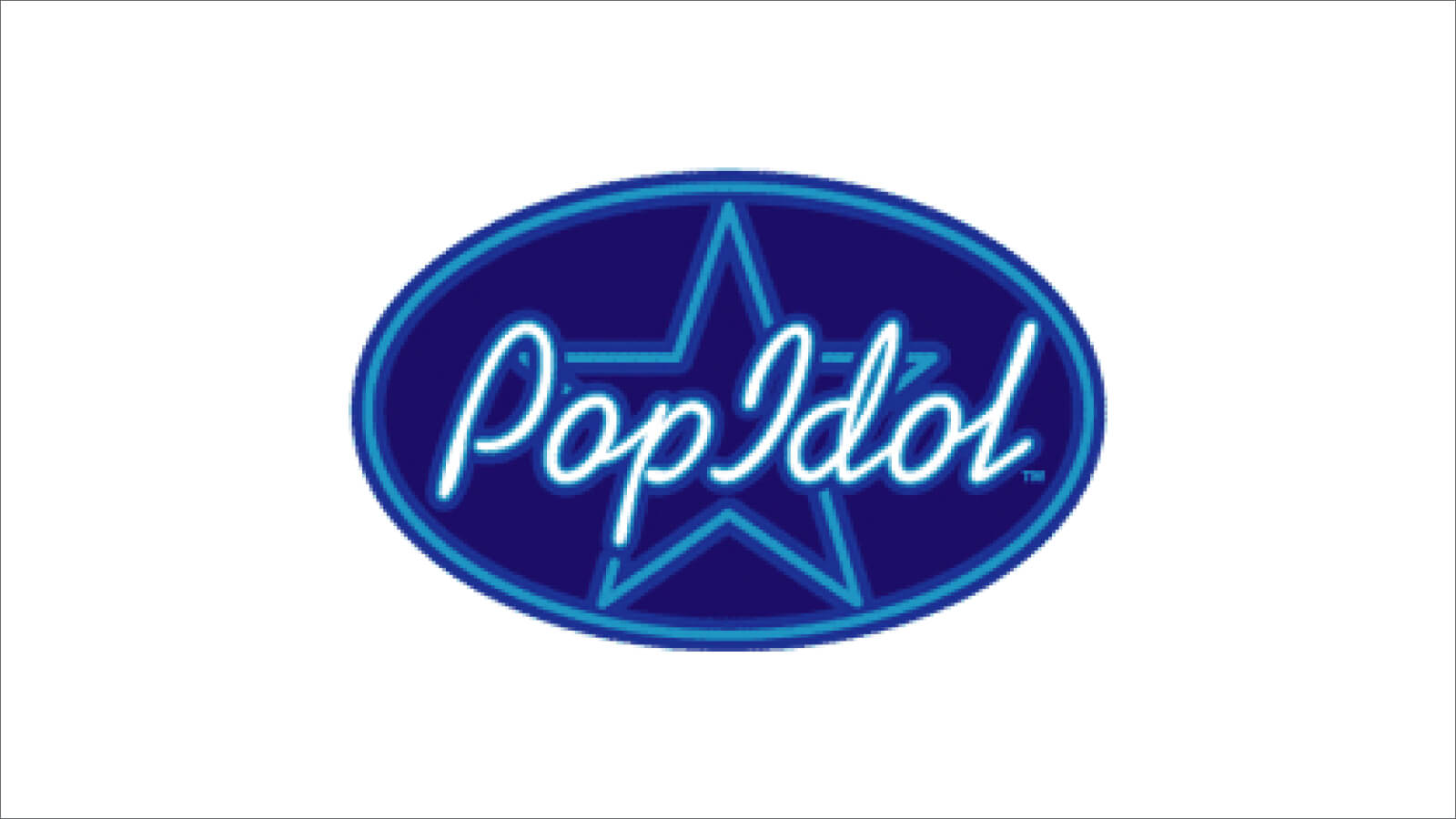
August 2002
Acquisitions in Germany
RTL Group acquires the German news channel NTV and various holdings of German radio stations from Holtzbrinck, including Radio NRW, Antenne Mecklenburg-Vorpommern, Antenne Thüringen, BB Radio, Antenne Niedersachsen and Radio Brocken.
December 2002
Delisting
RTL Group delists from the London stock exchange, but remains listed on the Brussels and Luxembourg stock exchanges.
2004
Further expansion
In January, Groupe M6 acquires a pay-TV channel based in Paris called Paris Première. With the launch of Plug TV in February (renamed Plug RTL in 2008), the Belgian family of RTL channels is expanded. In April, RTL Group launches the Croatian TV channel RTL Televizija, increasing the company’s presence in Eastern Europe. RTL Group sells its interest in Sportfive in June and completes a new transaction with Advent International. Funds managed by Advent International and RTL Group are used to form a new company, which purchases the shares in Sportfive formerly held by RTL Group and Canal Plus Group. RTL Group holds a 25 per cent share of this new company. RTL Group acquires an 11.6 per cent holding in Grupo Media Capital – a leading Portuguese television and media company.
31 March 2005
W9
Groupe M6 launches the free digital terrestrial channel W9.
September 2005
100 per cent
The Group buys the remaining shares in the UK TV channel Five, owning a 100 per cent now.
October 2005
Entering the Russian market
RTL Group acquires a 30 per cent stake in the Russian TV network Ren TV.
2006
More channels
Five launches two new digital thematic channels in the UK – Five Life and Five US. Meanwhile in Germany, RTL Television launches RTL Crime, RTL Living, and Passion (a joint venture with UFA). RTL Group sells its stake in the sports and marketing company Sportfive.
2007
New activities
RTL Group sells its entire shareholding in the Portuguese media company Grupo Media Capital to Grupo Prisa. RTL Nederland launches the family’s fourth free-to-air TV channel, RTL 8, on 18 August. The asset deal between RTL Group and John de Mol’s Talpa Media Holding – which brought Radio 538 into the Group – is closed in October.
2008
New ventures
RTL Group acquires 66.6 per cent of Alpha Media Group in Greece.
20 February 2009
Original Productions
FremantleMedia acquires a 75 per cent stake in Original Productions, the US-based creator of hit television shows such as Ice Road Truckers, Deadliest Catch, Monster Garage and Ax Men.
2 & 29 October 2009
RTL Lounge
On 2 October, RTL Nederland launches RTL Lounge, the fifth TV channel in its portfolio. RTL Lounge is a special-interest digital channel which broadcasts the best Dutch, foreign drama and lifestyle programmes. On 29 October, RTL Nederland launches RTL Lounge Radio.
2010
The 2010s
Digitisation transforms the European TV markets, bringing RTL Group new ways of reaching viewers, via on-demand services and short-form video content made for consumption on mobile devices. RTL Group invests into advertising technology and expands Fremantle’s production of scripted series and films.
26 April 2010
100 per cent Blu
FremantleMedia buys an additional 25 per cent stake of the Danish production company Blu, taking its ownership to 100 per cent.
7 May 2010
Stocking up
RTL Radio Deutschland is increasing its current 36 per cent holding in Hit-Radio Antenne Niedersachsen to 49.9 per cent, the maximum allowed under Lower Saxon media law at the time. This step further enhances the position as the station’s largest single shareholder.
23 July 2010
Selling Five
RTL Group sells Five Group (Five) to the Northern & Shell company, owned by the British publisher Richard Desmond.
2 August 2010
Nitro
Grupo Antena 3 test-launches its third digital channel on 2 August. The new channel, Nitro, takes up regular operations from 23 August, targeting primarily men between the age of 35 and 55.
2 January 2011
Second channel in Croatia
RTL Televizija launches a second channel: RTL 2.
10 June 2011
Swapping stakes
RTL Group exchanges its 30 per cent stake in Ren TV for a 7.5 per cent stake in the National Media Group, one of the leading media groups in Russia.
25 July 2011
Increasing to 100 per cent
RTL Group reaches an agreement with its Croatian business partners Atlantic and Agrokor to acquire their respective 13 per cent shareholdings in the Croatian broadcasting operation RTL Hrvatska (RTL Televizija and RTL 2), increasing RTL Group’s share to 100 per cent.
28 July 2011
Expanding in Hungary
RTL Group acquires 31 per cent of the shares in the country’s market-leading channel, RTL Klub, plus 100 per cent of a portfolio of seven cable channels: Cool, Film+, Film+2, Reflektor, Prizma, Sorozat+, Muzsika TV.
1 September 2011
RTL Crime
RTL Nederland launches a second digital channel: RTL Crime.
1 January 2012
Selling assets
RTL Group exercises its put option towards John De Mol’s Talpa Media Holding. Following this put option, RTL Group gets back Talpa Media’s 26.3 per cent minority shareholding in RTL Nederland in exchange for 100 per cent of the shares in Radio 538.
5 January 2012
Leaving Greece
RTL Group sells its 70 per cent majority shareholding in Alpha Media Group to the Greek entrepreneur Dimitris Contominas.
1 April 2012
RTL Nitro
Mediengruppe RTL Deutschland (today RTL Deutschland) launches RTL Nitro, a digital channel showing high-end German free-to-air TV premieres, crime and sitcom classics as well as riveting films.
3 September 2012
RTL Telekids
RTL Nederland launches a new digital channel targeted to children: RTL Telekids.
1 October 2012
Grupo Antena 3 merges with La Sexta
The new group operates eight TV channels: Antena 3, La Sexta, Neox, Nova, Nitro, Xplora, La Sexta 3 Todo Cine and Gol TV.
1 October 2012
New cable channel
RTL Klub launches a new cable channel: RTL II.
5 November 2012
RTL Group goes India
In cooperation with Reliance Broadcast Network, RTL Group launches its first channel outside of Europe. Big RTL Thrill starts broadcasting in India on 5 November.
12 December 2012
A sister channel
Groupe M6 launches a new DTT channel: 6ter.
6 March 2013
Rebranding
Grupo Antena 3 is renamed to Atresmedia.
4 April 2013
Reduced shareholding
Bertelsmann reduces its shareholding in RTL Group via a public offering to 75.1 per cent. Following the transaction, RTL Group’s shares are now listed on the regulated market (Prime Standard) of the Frankfurt Stock Exchange. In September 2013, RTL Group shares are included in the MDax index.
26 June 2013
BroadbandTV
RTL Group takes a majority stake in the Vancouver-based multi-channel network BroadbandTV (sold in 2020).
7 August 2013
Videoland
RTL Nederland announces the acquisition of a majority stake in Videoland, a pay video-on-demand platform owned by The Entertainment Group, a leading film content provider in the Benelux region.
13 August 2013
RTL CBS Asia entertainment network
RTL Group and CBS Studios International form the joint venture RTL CBS Asia Entertainment Network to launch two channels in Southeast Asia: RTL CBS Entertainment and RTL CBS Extreme.
31 August 2013
Renaming
Hit-Radio Antenne is renamed to Antenne Niedersachsen.
19 September 2013
Leaving Russia
RTL Group sells its 7.5 per cent stake in the National Media Group.
26 September 2013
Divimove
FremantleMedia acquires a 26 per cent minority stake in the multi-channel network Divimove (today the digital studio and talent agency We Are Era).
11 January 2014
New children’s channel
RTL Hrvatska launches the new children’s channel RTL Kockica.
26 March 2014
495 Productions
FremantleMedia acquires a majority stake in the US-based production company 495 Productions.
8 May 2014
Geo Television
Mediengruppe RTL Deutschland launches a new documentary pay TV channel: Geo Television.
8 May 2014
Termination of a joint venture
RTL Group discloses in its first quarter report that – by the end of April 2014 –RTL Group and Reliance Broadcast Network Limited will terminate their joint venture agreement in relation to the male-oriented action channel Big RTL Thrill in India.
31 July 2014
SpotXchange
RTL Group announces its acquisition of a 65-per-cent majority stake in the programmatic video advertising platform SpotXchange. In 2015, the company is renamed to SpotX.
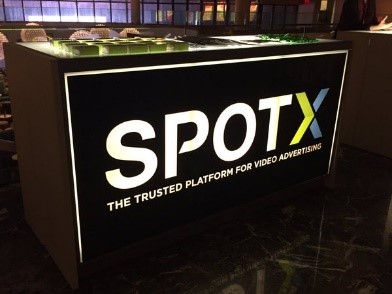
23 January 2015
Divimove
FremantleMedia announces that it has increased its shareholding in Europe’s leading multi-channel network Divimove, making it the majority shareholder (51 per cent).
27 August 2015
Wildside
FremantleMedia announces the acquisition of a 62.5 per cent majority stake in Wildside, a leading Italian television and feature film producer, to strengthen its prime-time scripted portfolio.
7 September 2015
RTL Z
RTL Nederland launches the new TV channel RTL Z, which focuses on business, finance, tech and lifestyle content.
17 September 2015
Naked Entertainment
FremantleMedia announces the acquisition of a 25 per cent stake in Naked Entertainment, the newly formed production company from multi award-winning producer Simon Andreae.
2 October 2015
Kwaï
FremantleMedia announces the acquisition of a majority stake in French scripted producer Kwaï.
1 January 2016
Tail slate for Marnach
The medium wave transmitter site in the north of Luxembourg closes its doors after almost 60 years of operations. Radio Luxembourg, now an iconic English-language station, was broadcast on the famous “Two-O-Eight”, a medium wave frequency of 208 metres, until 1991. Medium wave broadcasts of the English programme were initially transmitted from the site in Junglinster, starting on 15 January 1951, and joined by programmes in Dutch in 1953. But on 14 December 1956, these broadcasts were moved to Marnach to guarantee a better signal reception, primarily in the UK and Scandinavia. On 15 July 1957, Radio Luxemburg’s day-time German-language programmes followed suit.
4 January 2016
A tang of freshness
Mint, RTL Belgium’s pop rock radio station, which graced the airwaves with its own particular brand of freshness between January 2007 and September 2008, returns to the FM waveband.
21 January 2016
Abot Hameiri
FremantleMedia announces the acquisition of a 51 per cent majority stake in Abot Hameiri, a leading Israeli production company specialising in entertainment formats, scripted reality and drama.
22 February 2016
L’essentiel radio
L’essentiel radio is inaugurated in Luxembourg on 107.7 FM by Xavier Bettel, Prime Minister and Minister of Communication and Media. CLT-UFA has a 25 per cent stake in this French-speaking radio station.
21 March 2016
Investment in online video advertising sales
Mediengruppe RTL Deutschland announces the acquisition of a 93.75 per cent majority stake in Smartclip, with a call option to acquire the remaining shares.
April 2016
Divimove
In April 2016, RTL Group exercises the option to acquire an additional 24.5 per cent interest in Divimove, bringing the Group’s shareholding to 75.5 per cent.
4 June 2016
Two more channels
Mediengruppe RTL Deutschland launches two new channels: RTL Plus and Toggo Plus.
11 July 2016
From Croatia to the world
RTL Croatia expands its offer by launching RTL Croatia World, the first channel dedicated to Croatians living outside the country.
19 April 2017
New headquarters
RTL Group officially inaugurates its new headquarters, to be known as RTL City. The new location is just a short walk away from the former premises, designed to house the Group’s Luxembourgish activities.
17 July 2017
A chapter closes
UFA sells the remaining 35 per cent shareholding that the Group held in RTL 9 (which emerged from the pioneering channel Télé Luxembourg) since 1998 to Groupe AB.
7 November 2018
Groupe M6
In November 2018, Groupe M6 announces that it has finalised the sale of the Football Club Girondins de Bordeaux to the US investment fund General American Capital Partners.
1 December 2018
Divimove
RTL Group increases its shareholding in Divimove to 100 per cent.
2019
Reorganisation of digital assets
Short-form video: In January 2019, RTL Group combines Divimove and UFA X into one integrated powerhouse for the production, aggregation, and monetisation of short-form video content in Europe. In July 2019, RTL Group announces that it will combine its digital video business in the Nordics (United Screens) with Divimove. Additionally, the Group announces that it plans to integrate the Dutch RTL multi-channel network into the combined entity.
Ad-tech businesses:
In February 2019, RTL Group fully acquires the UK-based video technology company Yospace. With its advanced solutions for dynamic server-side ad insertion, Yospace provides one of the leading solutions for monetising high-quality video streaming across Europe, the US and Asia. In August 2019, RTL Group announces a strategic review of its ad-tech businesses. With immediate effect, Mediengruppe RTL Deutschland takes over responsibility for the Group’s ad-tech businesses in all European markets (except the UK), bundled under the brand Smartclip. The UK continues to be the hub that centralises the operations for SpotX Global in Europe. In parallel, RTL Group begins to review strategic partnerships for the SpotX Global business.
Ad-tech businesses:
In February 2019, RTL Group fully acquires the UK-based video technology company Yospace. With its advanced solutions for dynamic server-side ad insertion, Yospace provides one of the leading solutions for monetising high-quality video streaming across Europe, the US and Asia. In August 2019, RTL Group announces a strategic review of its ad-tech businesses. With immediate effect, Mediengruppe RTL Deutschland takes over responsibility for the Group’s ad-tech businesses in all European markets (except the UK), bundled under the brand Smartclip. The UK continues to be the hub that centralises the operations for SpotX Global in Europe. In parallel, RTL Group begins to review strategic partnerships for the SpotX Global business.
7 September 2019
Groupe M6
In September 2019, Groupe M6 acquires France’s leading free-to-air digital channel for children, Gulli, and five pay-TV channels from Lagardère.
2 December 2019
Vox Up
Mediengruppe RTL Deutschland launches the channel Vox Up as a spin-off of Vox, which is particularly popular among female viewers. Vox Up’s programme line-up includes expanded showcases for popular Vox formats, high-quality US fiction series and, right from the outset, some in-house productions.
2020
The 2020s
RTL Group’s markets are shaped by competition and consolidation. To compete with the global tech platforms, the Group’s strategy is focused on scaling up its broadcasting, streaming and content production businesses.
January 2020
RTL Group in Cologne
Following a reorganisation of the RTL Group Corporate Centre in Luxembourg, RTL Group opens its new Corporate Centre in Cologne, Germany.
20 October 2020
A joint French streaming service
The French streaming service Salto launches, a collaboration of the main French broadcasters: Groupe M6, Groupe TF1 and France Télévisions. Salto’s technical platform is built by Bedrock, a joint venture between RTL Group and Groupe M6.
28 October 2020
BroadbandTV
RTL Group sells its entire shareholding in the Vancouver-based digital video network BroadbandTV.
15 December 2020
RTL Play in Luxembourg
RTL Luxembourg launches its audio and video streaming service RTL Play with content in Luxembourgish, French and English.
28 December 2020
Full ownership of RTL Belgium
RTL Group acquires the remaining shares in RTL Belgium for a payment in cash and RTL Group treasury shares. This takes RTL Group’s shareholding in RTL Belgium to 100 per cent.
30 April 2021
Selling SpotX
RTL Group sells SpotX to Magnite, the world’s largest independent sell-side advertising platform, based in Los Angeles.
14 June 2021
A new brand identity
RTL Group unveils a new identity and design for its core brand RTL. The comprehensive redesign and repositioning strengthens RTL as Europe’s leading entertainment brand. The focus is on one unified RTL brand that stands for entertainment and independent journalism, as well as inspiration, energy and attitude. RTL Group implemented the new RTL brand identity in August 2021. RTL Deutschland also begins its rollout of the new branding, with rebranding the German streaming service TV Now to RTL+ on 5 November 2021.
1 July 2021
Super RTL
RTL Deutschland, acquires the outstanding 50 per cent shareholding in Super RTL which takes RTL Group’s shareholding in Super RTL to 100 per cent.
8 September 2021
Viaplay Group
Fremantle acquires 12 production labels from Nent Group – now called Viaplay Group – in Norway, Sweden, Finland and Denmark that operate across non-scripted, scripted and factual.
1 January 2022
A German cross-media champion
RTL Deutschland acquires Gruner + Jahr’s German publishing assets and brands from Bertelsmann. G+J contributes popular and trusted brands such as Stern, Geo and Capital, as well as journalistic experience. By investing in local content, independent journalism, technology and data, the combination strengthens RTL Deutschland’s position as partner of choice for Germany’s creative talent and boost the growth of its streaming service RTL+.
17 February 2022
An international advertising sales champion
RTL Group decides to combine its fully owned businesses RTL AdConnect, G+J iMS and the media division of Smartclip to create RTL AdAlliance, an international advertising sales champion.
3 March 2022
Lux Vide and Fabel Entertainment
Fremantle acquires 70 per cent of the shareholding in the leading Italian independent television production company Lux Vide. In the same month, Fremantle acquired a 25 per cent stake in Fabel Entertainment.
31 March 2022
Leaving Belgium
RTL Group sells RTL Belgium to the Belgian media companies DPG Media and Groupe Rossel. On 1 June 2022 RTL Group sells RTL Croatia to Central European Media Enterprises (CME). The sales follow consolidation to bundle resources and creativity. The buyers are regional media companies.
6 April 2022
Increasing stake
Fremantle increases its stake in Dancing Ledge Productions from 25 per cent to 61 per cent.
11 May 2022
Element Pictures
Fremantle acquires 51 per cent of Element Pictures, the production company behind Academy Award, Golden Globe and BAFTA-winning films, global dramas and mini-series such as Normal People, The Favourite, Room and Conversations With Friends.
June 2022
Eureka
Fremantle increased its ownership in the US/Australian production company Eureka to 100 per cent, having already acquired a majority stake in 2021.
16 September 2022
Proposed merger abandoned
Bouygues, RTL Group, Groupe TF1 and Groupe M6 decide to call off their plan to merge the TF1 and M6 groups. This decision comes after the parties appeared at the hearings of the French Competition Authority’s board (Collège) on 5 and 6 September 2022 to argue in favour of the benefits and necessity of the deal. Following the debates with the Authority and despite the additional remedies proposed, it appears that only structural remedies involving at the very least the divestment of the TF1 TV channel or of the M6 TV channel would be sufficient to approve the proposed merger. The parties therefore conclude that the proposed merger no longer has any strategic rationale. On 17 May 2021 Groupe TF1, Groupe M6, Groupe Bouygues and RTL Group announced that they intend to create a major French media group to master the challenges arising from the accelerating competition with global platforms.
7 November 2022
Expanding in documentaries
Fremantle acquires a 55 per cent majority stake in the production company 72 Films, which focuses on documentaries and factual entertainment. On 15 November, Fremantle acquires a 51 per cent majority stake in Wildstar Films, which focuses on natural history documentaries. On 23 November, Fremantle acquires a majority stake in Silvio Productions, an independent Israeli production company.
16 November 2022
RTL+ in Hungary
RTL Hungary launches RTL+, a subscription-based, advertising-free streaming platform. The platform launches on 16 November 2022 as the largest Hungarian streaming service, offering local and exclusive content.
1 January 2023
End of long wave
In France, RTL Radio is the final radio station to stop broadcasting via long wave, due to the high use of energy for this broadcasting service.
30 January 2023
Proposed merger disapproved
The Dutch Authority for Consumers and Markets does not grant a licence for RTL Nederland to merge with Dutch media company Talpa Network, saying the combination would be too dominant in the Dutch market. On 22 June 2021 RTL Group and Talpa Network announced that they have signed agreements to merge their broadcasting and affiliated media businesses in the Netherlands and create a strong Dutch cross-media group.
7 February 2023
Reorganisation of the publishing business
RTL Deutschland reorganises its publishing business to focus on its core brands: Stern, Geo, Capital, Stern Crime, Brigitte, Gala, Schöner Wohnen, Häuser, Couch, Eltern, Chefkoch, Geolino and Geolini Mini, which are responsible for around 70 per cent of its current publishing revenue.
27 March 2023
The end of Salto
Groupe M6 and Groupe TF1 close their joint French video platform Salto.
27 April 2023
RTL Luxembourg goes United
RTL Luxembourg presents a new design across TV, websites, apps, social media and visual radio. With the rebranding, RTL Luxembourg joins the unified RTL brand identity, launched in 2021 to strengthen RTL as Europe’s leading entertainment brand. The rollout is accompanied by a 360-degree marketing campaign, focusing on RTL’s core values and featuring the multilingual slogans “All Moment RTL”, “Every moment RTL” and “Les moments RTL”.
02 May 2023
RTL Nederland goes United
RTL Nederland launches the unified RTL brand identity across all TV channels and RTL’s corporate brand in the Netherlands. RTL Nederland introduced the multi-coloured logo on its TV channels RTL 4, RTL 5, RTL 7, RTL 8 and RTL Z, the themed channels RTL Crime, RTL Lounge and RTL Telekids, digital platforms RTL.nl and the RTL app, and across all corporate communication.
19 October 2023
RTL+ goes all inclusive in Germany
The leading German streaming service on the market bundles all entertainment offers in one app: Series, reality shows, live sports, films, music, audiobooks, podcasts and magazines.
15 December 2023
RTL Group to sell RTL Nederland to DPG Media
RTL Group announces that it has reached an agreement on the sale of RTL Nederland to DPG Media, a leading multi-media company active in the Netherlands, Belgium and Denmark. Subject to regulatory approvals and the consultation process with the respective works councils, the all-cash transaction is expected to close around mid-2024.
20 February 2024
RTL Group invests over €200 million to expand its global content business Fremantle
Fremantle, RTL Group’s global content production business, reaches an agreement with Oaktree Capital Management to acquire Asacha Media Group. Asacha Media Group is a European production group based in Paris that owns majority stakes in eight production companies in France, Italy and the UK focusing on scripted and unscripted content. Additionally, Fremantle acquires a majority stake in Beach House Pictures, one of Asia’s largest independent TV and Film production companies. Founded in 2005 by producers Donovan Chan and Jocelyn Little, Beach House Pictures specialises in creating and co-financing original IP across non-scripted, scripted, entertainment and brand-funded programming for all major regional and international platforms.
11 March 2024
Four Oscars for Poor Things
A first for Fremantle and RTL Group: Poor Things, produced by Fremantle’s Element Pictures, wins four Academy Awards in the categories Best Actress, Best Costume Design, Best Production Design and Best Makeup & Hairstyling.
15 May 2024
Launch of M6+
Groupe M6 launches its new streaming service with a doubled programme offering, a more innovative platform and a national advertising campaign.